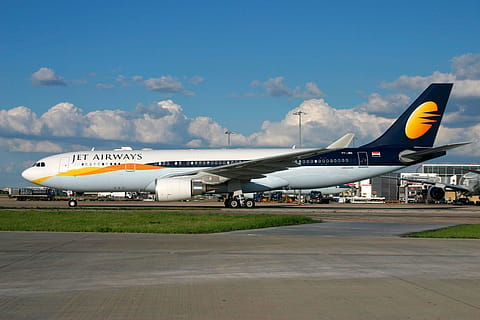Abort take-off? Why it won't be easy to revive Jet Airways
While Jet Airways has found investors in UK-based Kalrock Capital, and UAE-based entrepreneur Murari Lal Jalan, the impact of Covid-19 on the aviation industry could derail its second take-off.

In April last year, India’s once-premier airline Jet Airways, which was born out of the open skies policy of the early 1990s, shut shop as it didn’t have funds to keep flying. Today, after 18 months, the airline and its associates have both good and not-so-good news to ponder over.
The good news is that the airline has found potential investors in the UK-based Kalrock Capital, an asset management company, and UAE-based entrepreneur, Murari Lal Jalan, both of whom are looking to revive Jet Airways' fortunes. The not-so-good news, however, is that, globally, the aviation industry is in deep distress owing to the Covid-19 pandemic, and hence to revive a loss-making airline, such as Jet Airways, at this juncture would be nothing short of a miracle.
“It’s extremely difficult for a grounded airline to be revived in a pandemic-affected market, where even mega, profitable carriers are facing a financial crisis,” says Jitender Bhargava, former executive director of Air India. A consortium of lenders, led by the State Bank Of India, had dragged Jet Airways to the bankruptcy courts in June last year, and the airline was subsequently admitted under the Insolvency and Bankruptcy Code.
On Saturday, a year later, Ashish Chhawchharia, the resolution professional of Jet Airways, in a filing to the stock exchanges, said that the committee of creditors at its “seventeenth meeting" had approved a resolution plan submitted by Kalrock Capital and Murari Lal Jalan. The resolution plan will now be put forth to the National Company Law Tribunal for its approval.
“This (approval of the resolution plan) took a long time because of the nature of the business,” says Harish H.V., managing partner, ECube Investment Advisors, an environmental, social, and governance focussed financial services firm. It still isn’t clear how much money would exactly be needed to put Jet Airways back in the skies, “as there isn’t much left of it other than the brand,” adds Harish.
A news report published on the web portal of The Hindu BusinessLine read: “Both the bidders, in their resolution plan, had proposed to the lenders that they were willing to liquidate the assets and reinvest the money in the revival of the airline.” To date, close to ₹40,000 crore of dues have been claimed against Jet Airways, of which the airline’s resolution professional has only admitted about ₹15,525 crore. “Jet Airways can only have a semblance of a revival if all old liabilities are forgotten and it makes a modest beginning—virtually in a new avatar,” says Bhargava.
Kapil Kaul, CEO and director, CAPA South Asia (CAPA India), an aviation research, advisory, and consultancy firm has been skeptical about Jet Airways’ revival and believes that the airline will eventually go into liquidation. “Congratulations to the winners (Kalrock Capital-Murari Lal Jalan) and wish them all the best,” says Kaul. “But the terms accepted by the creditors don’t make sense to me; I don’t see this as a viable plan, as funding and strategic resources required have been grossly underestimated.”
Recommended Stories
Owing to the pandemic, in India, domestic passenger is down by over 60% year-on-year, with airlines operating at about 50% of their overall capacity. According to Vinamra Longani, head of operations for Sarin & Co., an Indian law firm specialising in aircraft leasing and finance, the demand for business travel remains subdued and the price sensitive leisure travel (segment) has been severely hit by the pandemic. For some airlines, business travel accounts for as much as 75% of their total ticket revenues.
“Resurrecting an airline in these circumstances may have its advantages as the Kalrock Capital-led consortium will be able to hire staff at a fraction of the cost and negotiate deals with suppliers too. However, till the time-sustained demand for air travel returns, operating a full-service airline (like Jet Airways) in India will continue to be a loss making proposition for them,” adds Longani.